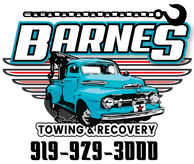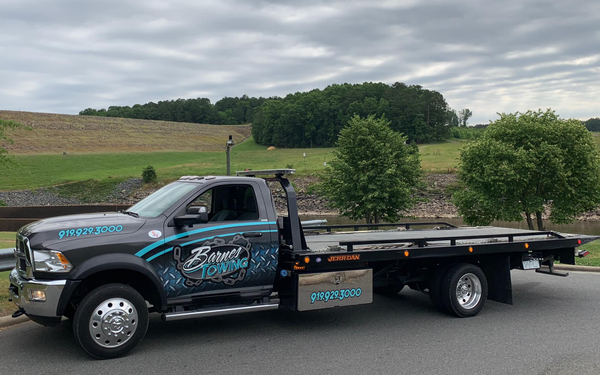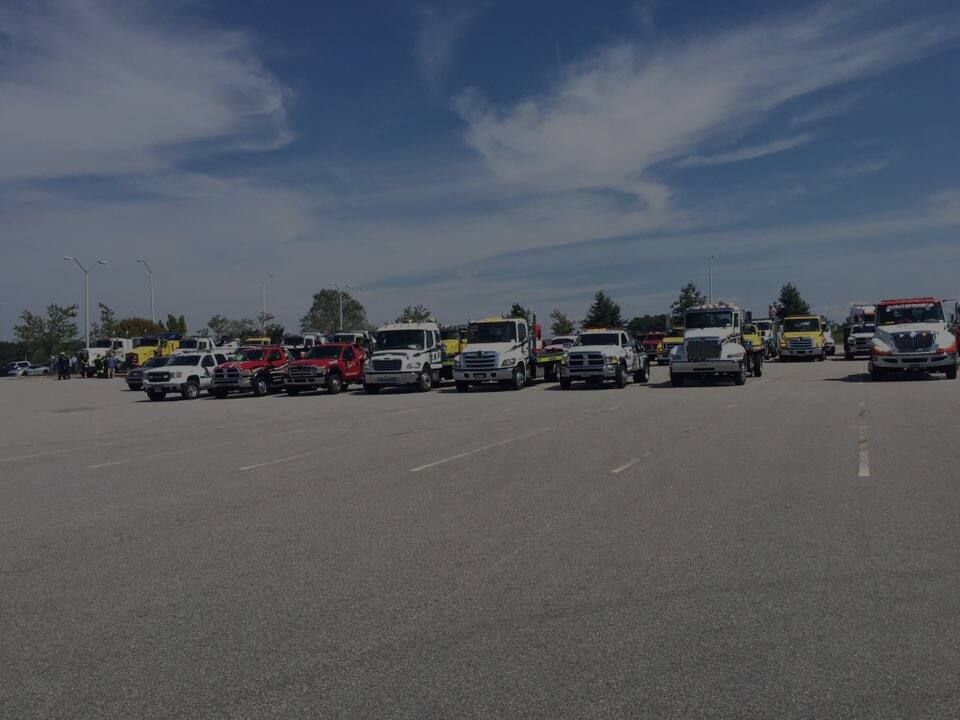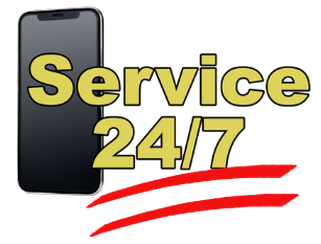We Care About Our Fellow Operators
Winter Driving Tips for Tow Truck Operators: A Guide to Staying Safe and Prepared in Orange County, NC
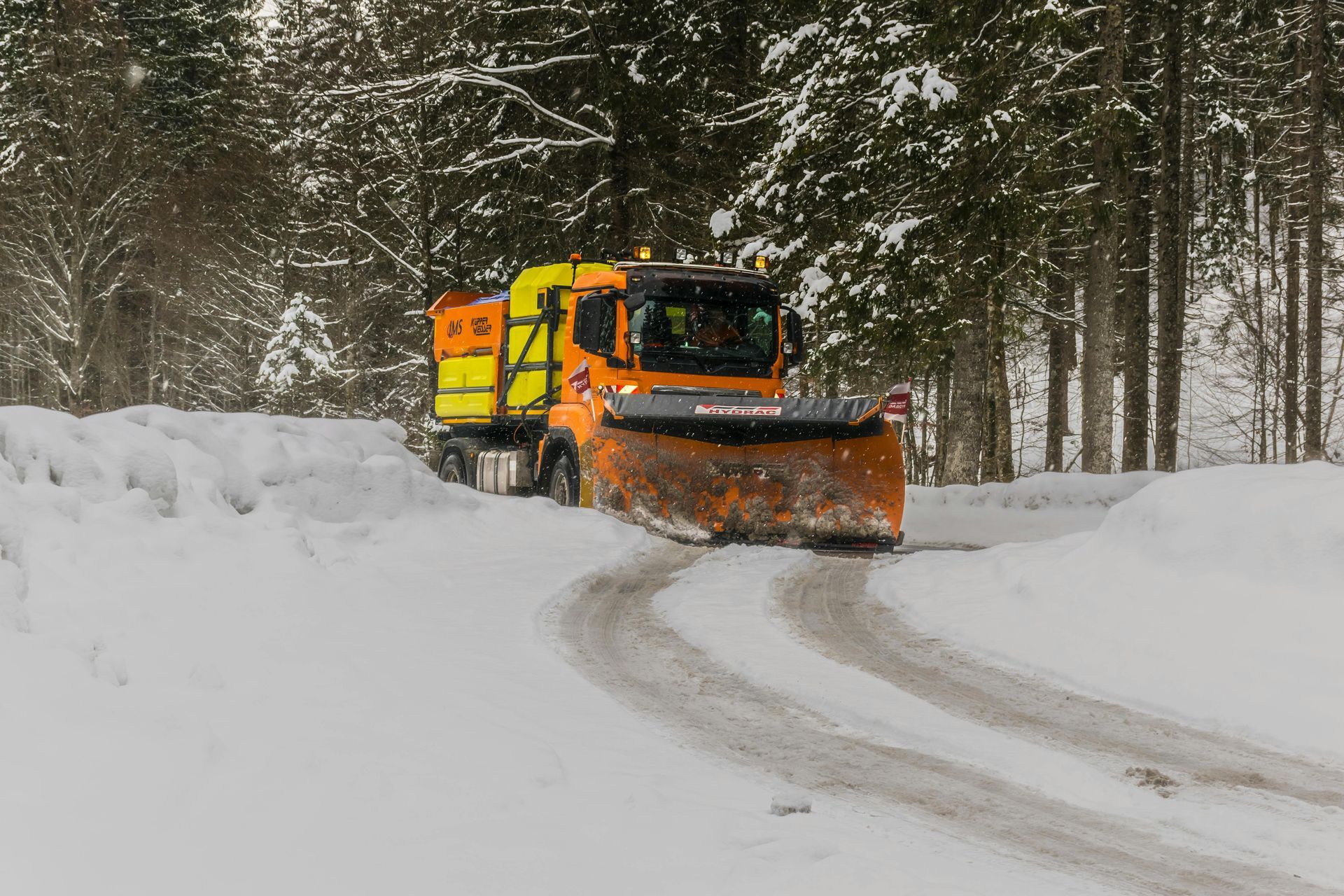
As the winter months approach in Orange County, North Carolina, tow truck operators face an increased set of challenges on the road. Whether you're working independently or as part of a larger team, the winter weather can make towing and recovery operations more difficult and dangerous. Snow, ice, and freezing temperatures demand extra caution and preparation to ensure your safety and the safety of others. This guide offers valuable tips to help all tow truck operators in Orange County stay safe, prepared, and efficient during the colder months.
1. Prepare Your Tow Truck for Winter Weather
Before you hit the road for any towing or recovery job, it's critical to ensure your truck is ready for winter conditions. Regular maintenance is essential to avoid breakdowns and maximize your truck’s performance in harsh weather.
- Check Your Tires: Winter weather demands more from your tires, especially when it comes to traction on icy or snowy roads. Make sure your tires are properly inflated and have sufficient tread depth. If you frequently encounter icy conditions, consider investing in winter tires designed to perform better in cold temperatures.
- Inspect Your Battery: Cold weather can quickly drain a battery. Make sure yours is in top condition by having it tested before winter sets in. If the battery is weak or old, replace it to avoid unexpected failures while on the job.
- Fluids and Wipers: Winter can put extra strain on fluids like antifreeze, oil, and windshield wiper fluid. Top off your antifreeze and oil, and make sure your windshield wipers are working properly. Use a winter-grade windshield wiper fluid to prevent freezing and ensure clear visibility.
- Brake System Check: In icy conditions, your brakes need to perform efficiently. Make sure your brake system is properly maintained to handle the added stress of winter driving.
2. Equip Your Tow Truck with Essential Winter Gear
Being prepared for any emergency situation is key to staying safe during the winter months. Every tow truck operator should have the right winter emergency gear onboard to handle unexpected conditions.
- Shovel and Ice Scraper: Always have a snow shovel and ice scraper in your truck. These tools can be invaluable for clearing snow or ice from your truck or the vehicle you're towing. Being able to clear a path quickly can help you save time and avoid unnecessary delays.
- Warm Clothing and Blankets: Cold temperatures can make extended wait times uncomfortable and dangerous. Keep blankets, extra clothing, and hand warmers in your truck to stay warm in case you're stuck or need to wait in the cold.
- Road Flares and Reflective Triangles: Visibility is crucial, especially in low-light conditions like early mornings, evenings, or during snowstorms. Always carry road flares or reflective triangles to ensure that other drivers can see you and stay at a safe distance while you're working.
- Flashlight and Batteries: A reliable flashlight and spare batteries are important tools to have in your truck. In case you're working in the dark or in poor visibility, a flashlight can help you safely navigate and complete your job.
3. Adjust Your Driving for Winter Conditions
Driving in winter weather requires a different approach. Tow truck operators should always adjust their driving techniques to match road conditions to avoid accidents and stay safe.
- Slow Down: One of the most important things to remember during the winter is to reduce your speed. Snow, ice, and rain reduce traction, so you’ll need extra time to react to hazards and to stop safely. Slow down, especially when approaching intersections, curves, or bridges that may have ice buildup.
- Increase Your Following Distance: During winter months, stopping distances can be longer, so it’s crucial to increase the distance between your truck and the vehicle in front of you. Give yourself more time to react to sudden stops or emergencies.
- Use Your Headlights: Winter weather often means reduced visibility, especially during snowstorms, fog, or rain. Always drive with your headlights on to ensure you can see clearly and that other drivers can see you.
- Watch for Black Ice: Be especially cautious in areas where ice may form, such as on bridges, overpasses, or shaded areas. Black ice is difficult to see and can lead to dangerous, slippery conditions. If you encounter black ice, maintain a steady speed, avoid sudden steering or braking, and keep your vehicle as straight as possible.
4. Know When to Call for Help
Sometimes, winter conditions can make it unsafe to continue a job on your own. It’s important to know when to call for backup or delay a job to ensure your safety.
- Poor Visibility: If a snowstorm, fog, or heavy rain reduces your visibility to the point where you can’t see the road or other vehicles, it's best to pull over and wait until conditions improve. Your safety should always come first.
- Icy or Flooded Roads: If you find yourself on roads that are too icy or flooded to safely complete the tow, consider delaying the job or calling for backup. In some situations, it’s better to wait for the weather to improve rather than risk getting stuck or causing an accident.
- Unsafe Recovery Locations: If you're asked to tow a vehicle from a location that’s too dangerous — such as a slope covered in ice or a snowbank with no safe escape route — it’s better to assess the situation and ask for assistance or equipment to ensure the job can be completed safely.
5. Communication and Coordination
Communication is key, especially when winter weather complicates operations. Whether you’re working for yourself or with a larger team, staying in contact with dispatch or fellow operators can help ensure efficiency and safety.
- Keep Clients Updated: Winter weather can cause delays, so it’s important to keep your clients informed about your estimated arrival times. Let them know if weather conditions are causing delays so they can plan accordingly.
- Stay Connected with Dispatch: Regular communication with dispatchers is crucial, especially if you're working in isolated areas or facing challenging road conditions. Having a clear line of communication allows for faster response times and more efficient coordination with other drivers if needed.
6. Take Care of Yourself
Winter towing can be physically demanding, and it’s easy to overexert yourself in challenging weather. Make sure you’re taking care of your physical health, staying warm, and avoiding fatigue.
- Stay Hydrated: Even in cold weather, it's important to stay hydrated. Dehydration can affect your performance and increase the risk of accidents.
- Take Breaks: Winter conditions can be exhausting, especially if you’re working long hours in cold temperatures. Take regular breaks to warm up, hydrate, and rest. Fatigue can impair your reaction times and judgment, so it’s essential to stay alert.
- Dress Appropriately: Layer your clothing to stay warm without restricting your movement. Make sure you have insulated gloves, boots, and a jacket to protect yourself from the cold while you work.
As a tow truck operator in Orange County, NC, your work is critical to keeping the roads clear and safe during the winter months. By preparing your truck, equipping yourself with the right gear, and adjusting your driving techniques, you can minimize risks and ensure that you're ready for whatever winter throws your way. Safety should always be the top priority, and by following these tips, you’ll be well-prepared to serve your community and stay safe on the road.
Remember, no matter if you're an independent driver or part of a larger team, we’re all in this together. Stay safe, drive smart, and keep your vehicle ready for the season ahead.
